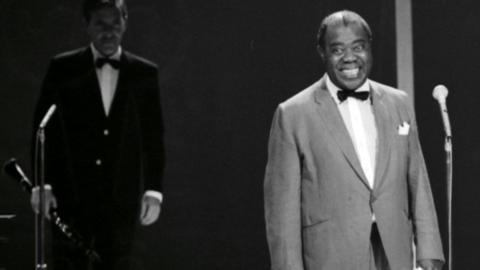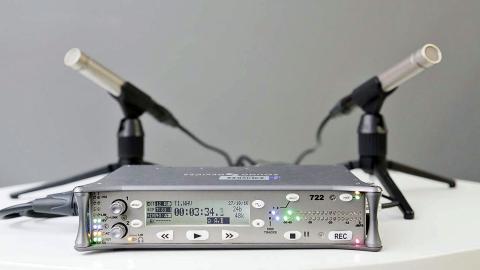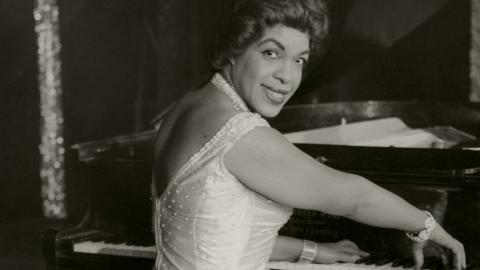
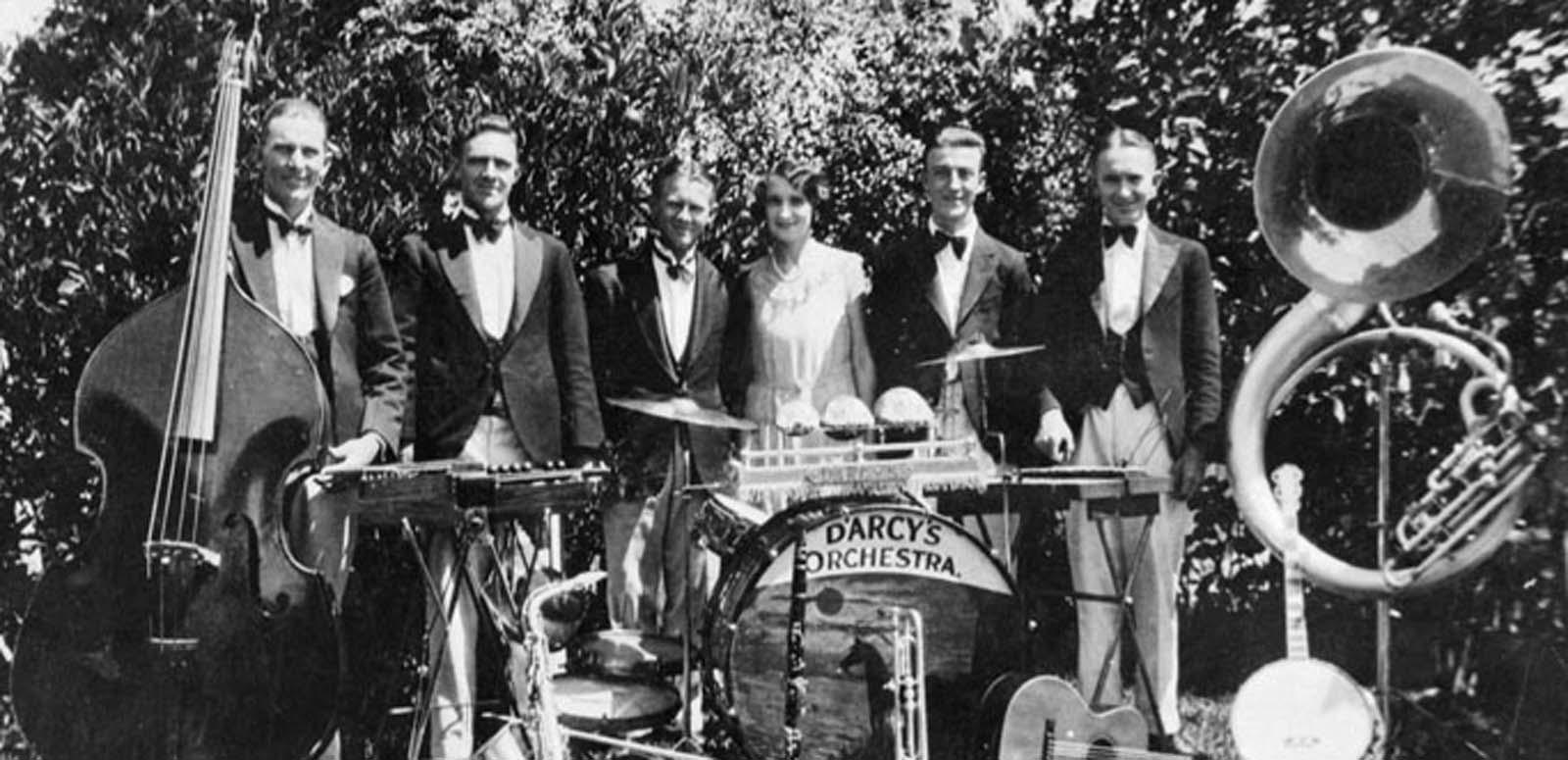
Australian Jazz Archive
The Australian Jazz Archive was first established as part of an initiative by members of the Australian jazz community in 1997. It then formed a partnership with the NFSA to build a national collection of jazz recordings and materials.
Over many years, the NFSA has built a substantial collection of Australian jazz material, including sound recordings, film, videos and oral histories.
Within the Australian Jazz Archive, there are also photographs documenting Australia’s early jazz history. Shown below, are some of the gems you can find in our collection.
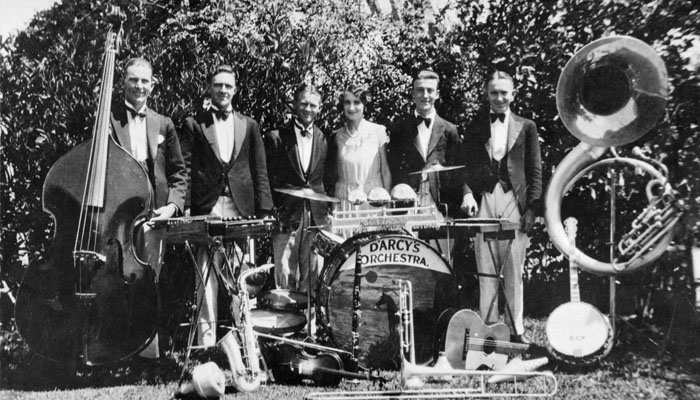
Doreen D’Arcy’s Orchestra. NFSA title: 430295
This image taken in 1931 is of Doreen D’Arcy’s Orchestra, a six piece dance band from Perth. There were a number of bands led by women in Perth at that time, including the all girl band led by May Salter called The Melody Girls.
Pictured from left, Arthur O’Keefe (bass, sousa), Ray Reason (trumpet), Norm Rider (drums), Doreen D’Arcy (piano, leader), Bob Gibson (saxophone, clarinet, violin), Wally Hadley (banjo, flute, guitar).
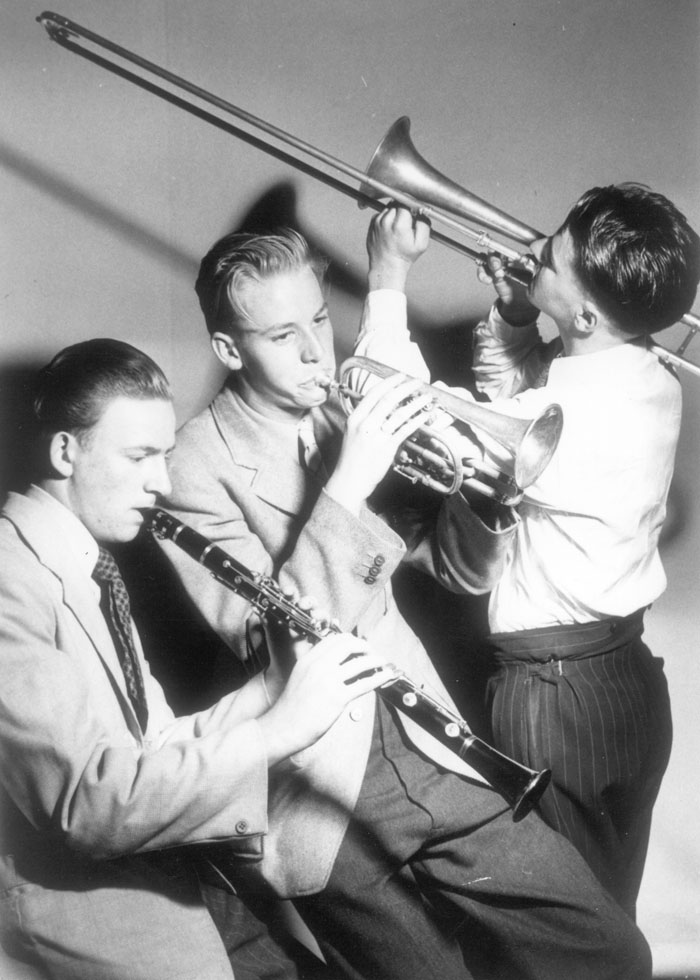
Frank Johnson’s Fabulous Dixielanders. NFSA title: 571548
Formed in 1945, the original members of the Frank Johnson’s Dixielanders were Frank Johnson, Geoff Kitchen, Ken Thwaites, Eric Washington and Geoff Bland.
This photo taken in 1947, has two of the founding members of this influential Melbourne band, Geoff Kitchen and Frank Johnson. Also pictured is Warwick ‘Wocka’ Dyer, their trombonist.
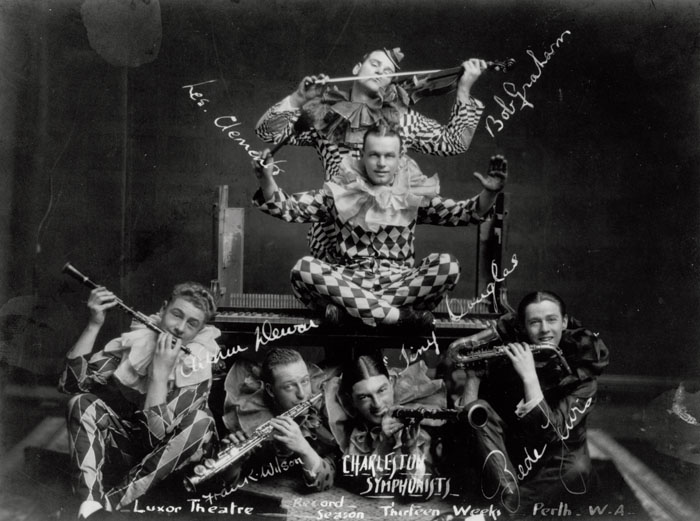
Charleston Six. NFSA title: 530022
The Charleston Six also known as The Charleston Symphonists, were a jazz band that played Charleston dance music. The Charleston beat, a distinctive rhythm, was thought to have originated on the docks in Charleston, South Carolina and was popularised by a 1923 tune by composer and pianist James P. Johnson called ‘The Charleston’.
The Charleston Six are known to have worked on the Nat Phillips’ Whirligigs show and the Stiffy and Mo Revue, stage shows which combined music, dance and comedy sketches.
Written on the back of this photo is: ‘Charleston Symphonists aka The Charleston Six, Bob Graham -Top, Les Clements – Cross-legged, below front left to right, Arthur Dewar, Frank Wilson, Tiny Douglas, Bede Lewis. Luxor Theatre, Perth, 1926’.
The musicians are not holding the instruments they play, these have been placed randomly in the photo to create a more interesting image.
The National Film and Sound Archive of Australia acknowledges Australia’s Aboriginal and Torres Strait Islander peoples as the Traditional Custodians of the land on which we work and live and gives respect to their Elders both past and present.
